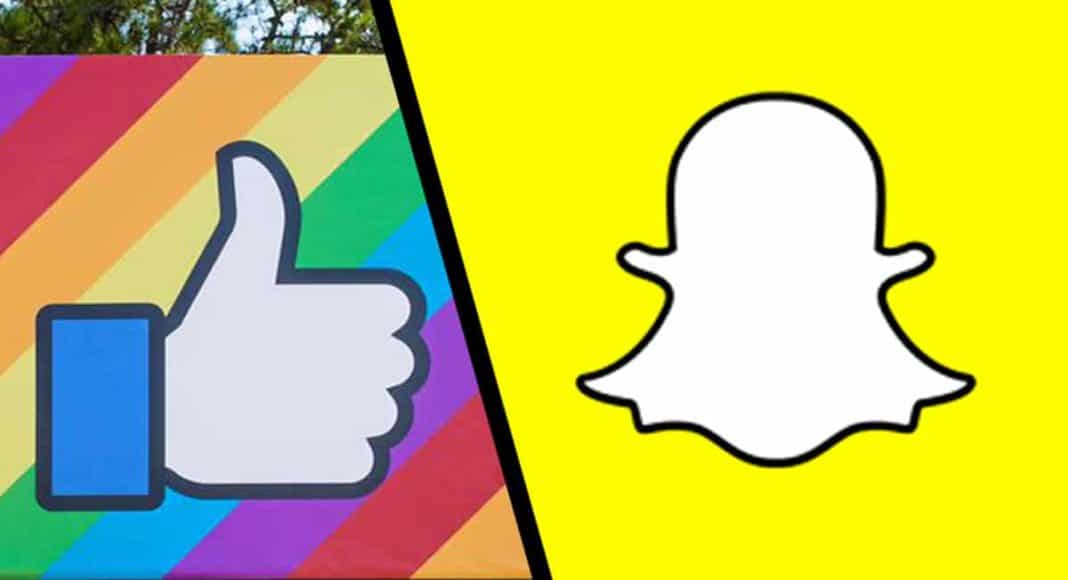Within Silicon Valley and tech circles, there’s a long-running joke that Snapchat clandestinely serves as Facebook’s R&D department. The punchline should be obvious: Facebook steals fresh, innovative features from Snapchat so often, the company should be on the payroll.
A joke, sure, but it’s also a viciously shrewd business tactic by Mark Zuckerberg. Snapchat could market itself competitively against Facebook with these features, growing traffic and its stagnant user base, but Facebook de-incentivizes users from doing so. Why jump ship when the product remains virtually the same? As Zuckerberg, and therefore Facebook as a company, prizes wide-sweeping prominence and never-ending growth in the digital market, it aims to squash competition handedly. If you can’t beat ’em, steal from them.
This foundational attitude underscores much of Facebook’s business practices. Though everyone who uses the service labels Facebook a social media network, Zuckerberg has been vehement in his opposition of the term. “We are a tech company, not a media company,” he said last year. Coupled with his long-held “privacy is dead” stance, you wonder just what kind of internet the Facebook CEO aims to cultivate.
When it was revealed that Russian propaganda groups infiltrated major networks like Facebook and Twitter, you worried if social media could truly be the future of the web. Is this what we can expect in Zuckerberg’s internet? As congressional probes regarding the 2016 election disclosed, Russian accounts spreading fake news and false information on Facebook reached about 10 million people through only $100,000 in advertisement spending. While without a doubt disheartening, you should know media companies privately crave for that kind of reach in digital advertising dollar.
-
Related Story: Is Instagram Actually Winning Vs. Snapchat?
Google too suffered from a similarly compromising position. This October, the company confirmed that its advertising arm had been infiltrated by the same Kremlin-affiliated troll farms that besieged Facebook. That disinformation proliferated through YouTube, Gmail, and even Google search results. If Google too was guilty of such breaches, you started to fear that our current organizing principles of the internet weren’t severely broken.
Except Snapchat doesn’t have a fake news problem. Even though, as Bloomberg noted, every American social network from Facebook, Twitter, LinkedIn, Pinterest, Reddit, and even Pokémon Go suffered from significant Russian activity last year, no Kremlin troll farms sneaked into Snapchat to diffuse its political messaging. Why? How? Basically because they tried where others wouldn’t by hiring human filters and editors.
“We only work with authoritative and credible media companies, and we unashamedly have a significant team of producers, creators, and journalists,” Nick Bell, Snap’s vice president for content, told Bloomberg.
Amidst this wake of negative attitudes toward Facebook and social media in general, Snapchat is now marketing itself as the anti-Facebook. This week the company announced a massive redesign with the tagline of “separating social from media.” When you open the app, you’re greeted with a camera view. If you swipe left, you can access your social network, using Snap as a communication tool. Swipe right, and you can view stories vetted by Snap’s editorial team, as well as content from well-known media publishers.
Snapchat CEO Evan Spiegel explained the redesign and its intentions in the above video as well as a written op-ed on Axios. And boy does the op-ed contain some tasty nuggets! Come for the social media revolution, stay for the stray shots at Facebook. As literally the first two sentences declare, “The personalized newsfeed revolutionized the way people share and consume content. But let’s be honest: this came at a huge cost to facts, our minds and the entire media industry.”
Hmmm? What networks does that remind you of? (Important caveat: Tech boy drama is fun and silly until you realize they’re basically responsible for ethically designing and maintaining the fabrics of modern communication and media. So like, yeah, #jokes or whatever, but also…maybe…just do your job?) Smartly, Spiegel is positioning Snapchat as the answer to social media fatigue. As he firmly argues while preaching to the choir, social media isn’t so much the future, but our present oxymoron.
-
Related Story: 3 More Ways Facebook Could Dominate Your Life
“The combination of social and media has yielded incredible business results, but has ultimately undermined our relationships with our friends and our relationships with the media,” Spiegel writes. “We believe that the best path forward is disentangling the two by providing a personalized content feed based on what you want to watch, not what your friends post.”
To which I scream to the heavens like Andy Dufresne in Shawshank Redemption as rain cascades and lightning blooms around me, “YESSSSSSS!!!!!” Perhaps Snapchat might rise up and show us the light amidst so much internet darkness. That a major Silicon Valley player is publicly courting this type of change, to “disentangle” the mess of social and media, feels like radical step forward.
Then I realize the same lingering questions remain: Can Snapchat, or any other social app for that matter, survive long enough to show the way forward before Facebook swallows it whole with vicious growth attacks? Is an advertising-based revenue model valid for any digital media company when Google and Facebook maintain a “duopoloy” on the market? Can Snapchat attract an older generation that didn’t grow up with a cell phone in their cradle or are we stuck with algorithm-based newsfeeds that value clicks over credibility? The answer to those questions will determine matters big and small like if Donald Trump gets re-elected or whether I can expect my dad to eventually send me snaps of his Friday night garage band jams. For the sake of humanity and this country, I pray one day to hear those damn tunes.


